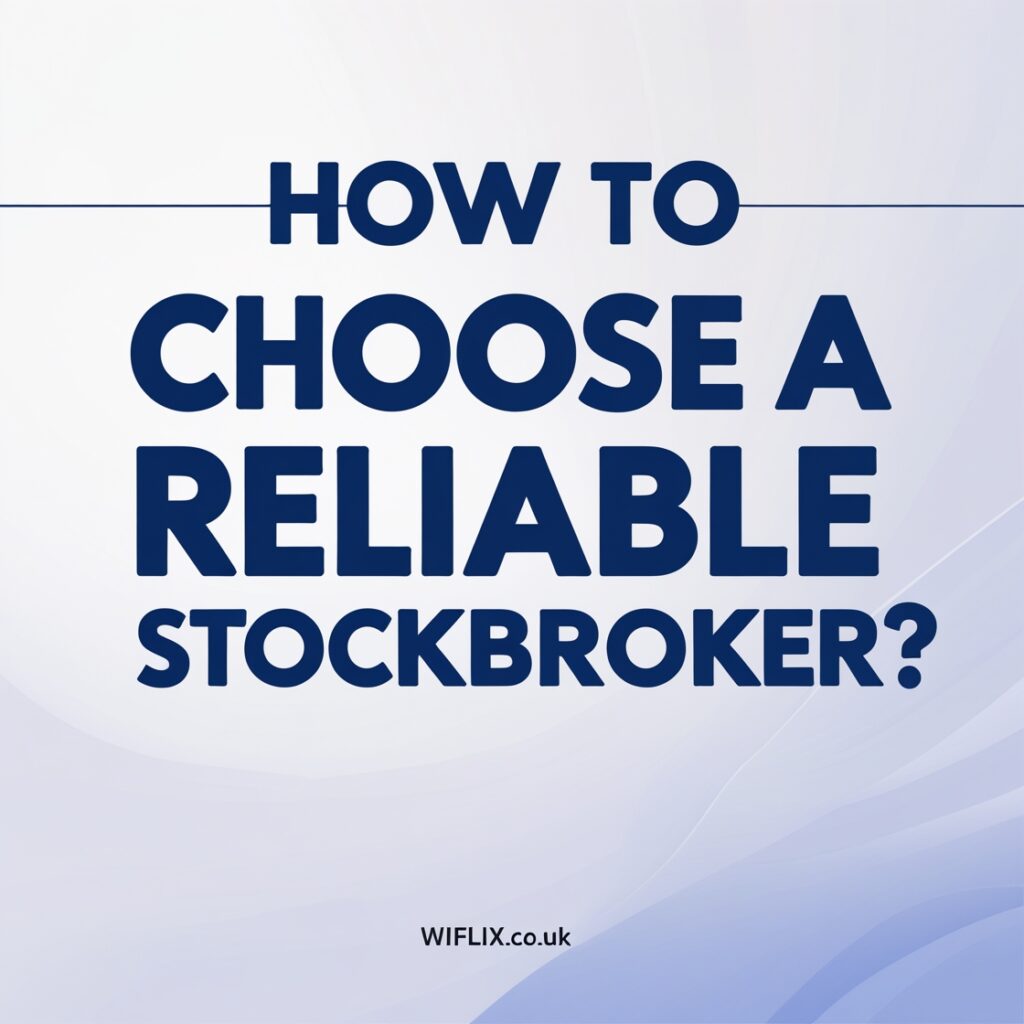Investing in the stock market can be an excellent way to grow your wealth, but your success depends largely on the stockbroker you choose to work with. With countless options available, finding a broker who aligns with your investment goals, budget, and level of expertise can feel overwhelming. Howto choose a reliable stockbroker? This guide will walk you through essential strategies and considerations to help you select the right stockbroker with confidence.
Understanding the Role of a Stockbroker

A stockbroker acts as an intermediary between you and the stock market, facilitating the buying and selling of securities. In addition to executing trades, many brokers offer investment advice, research reports, and portfolio management services. A reliable stockbroker not only executes your orders efficiently but also provides value-added services tailored to your investment needs.
How to choose a reliable stockbroker?

1. Determine Your Investment Goals
Before you begin your search, it’s essential to define your financial objectives. Are you looking for short-term gains, long-term growth, or income through dividends? Knowing your goals will help you narrow down brokers that specialize in your preferred investment strategies.
For instance:
- Day Traders might prefer brokers with low transaction fees and real-time analytics.
- Long-Term Investors might value brokers offering research tools and retirement planning services.
2. Evaluate the Broker’s Reputation
Reputation is a critical factor when deciding how to choose a reliable stockbroker. Search for surveys and tributes from different financial backers. Key aspects to assess include:
- Regulatory Compliance: Ensure the broker is licensed by your country’s financial regulatory authority (e.g., SEC in the U.S. or FCA in the U.K.).
- Client Satisfaction: Positive client reviews and a good track record indicate trustworthiness.
- Transparency: Reliable brokers clearly disclose their fees, terms, and conditions.
3. Understand the Fee Structure
Different brokers have varying fee models, including:
- Flat Fees: A fixed cost per trade, suitable for frequent traders.
- Percentage-Based Fees: A percentage of your total assets under management, common among full-service brokers.
- Hidden Costs: Watch out for additional charges like inactivity fees or account maintenance fees.
Choose a fee structure that aligns with your investment budget to avoid unexpected costs.
4. Assess the Available Tools and Resources
A good stockbroker provides tools and resources to help you make informed investment decisions. Look for brokers offering:
- Research Reports: Access to market analysis and company reports.
- Trading Platforms: Intuitive and user-friendly platforms with advanced features.
- Educational Resources: Tutorials, webinars, and guides for novice investors.
5. Check for Customer Support Availability
Investing can be time-sensitive, so a broker with reliable customer support is invaluable. Test their responsiveness by contacting them with a query before opening an account. Check if they offer support via multiple channels like phone, email, and live chat.
6. Consider the Broker’s Range of Services
Depending on your needs, you might require additional services beyond basic trading. Evaluate whether the broker offers:
- Advisory Services: For personalized investment guidance.
- Portfolio Management: To delegate the management of your investments to professionals.
- Diverse Product Offerings: Access to stocks, ETFs, options, mutual funds, and more.
7. Test the Broker’s Platform with a Demo Account
Many merchants offer demo accounts where you can work on exchanging without gambling genuine cash. Use this opportunity to explore the platform’s features, ease of use, and functionality.
8. Verify Security and Data Protection Measures
When working with a stockbroker, you’ll be sharing sensitive financial information. Ensure the broker employs robust security measures such as encryption, two-factor authentication, and compliance with data protection regulations.
9. Seek Recommendations from Trusted Sources
Ask friends, family, or colleagues about their experiences with stockbrokers. Personal recommendations can provide valuable insights and help you avoid brokers with poor reputations.
Common Mistakes to Avoid When Choosing a Stockbroker

While learning how to choose a reliable stockbroker, it’s equally important to know what to avoid:
- Choosing Solely Based on Low Fees: Low fees are attractive, but they may come at the expense of customer service or platform quality.
- Overlooking Regulatory Compliance: Unregulated brokers can put your investments at significant risk.
- Failing to Read Terms and Conditions: Always review the fine print to understand the broker’s policies.
Final Thoughts
Picking the right stockbroker is a pivotal move toward your speculation process. By carefully evaluating factors such as reputation, fees, services, and platform features, you can find a broker that suits your financial goals and trading style.
If you’re still wondering how to choose a reliable stockbroker, remember that there are no universally right or wrong answers—only the best fit for your specific needs. Take your time, do thorough research, and don’t hesitate to test out platforms before committing.
By employing these strategies, you can improve your chances of partnering with a legitimate and trustworthy stockbroker who will guide you toward financial success.
